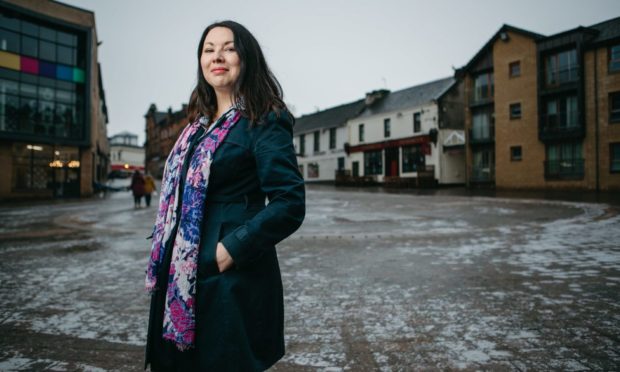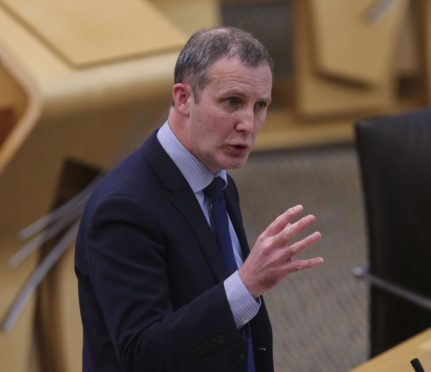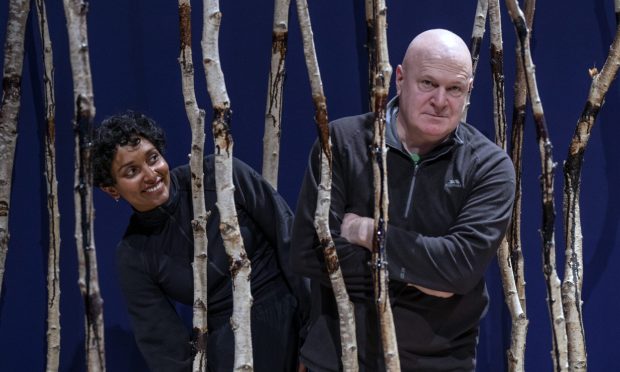The Scottish Government is facing calls to encourage more people to think about the clothes they wear in a bid to reduce the negative impact of ‘fast fashion’.
The term is used to describe how clothing brands mass-produce low cost clothes that try to replicate high-end fashion from the catwalks. People will wear the item once then throw it away.
Now a Scottish Labour MSP is calling on the SNP administration at Holyrood to do more to help reduce the associated waste and pollution.
Monica Lennon, Labour’s spokeswoman for “net zero”, energy and transport, said: “I am quite into fashion, and there is a lot more we need to do to reduce fast fashion, where people wear something once and then discard it.
‘Make some progress’
“It is definitely something that is on the government’s radar, but there is so much more we can do to speed things up and make some progress.
“I want to discuss this with the government and see what more we can do to support charities, social enterprises and businesses that work in this industry.
“I am also really keen to promote not just what the government can do, but what people can do as well.
“If something doesn’t fit anymore, or there is a tear in it, instead of throwing it out people can upcycle it.
“There is an environmental side to this, but also a workplace side – the working conditions for the people making these clothes are usually women being paid a low wage in countries like Bangladesh, and we need to raise awareness of that.”
What is the fashion industry’s impact on the environment?
According to Greenpeace UK, the fashion industry’s textile production accounts for 1.2 tonnes of CO2 every single year, which is a bigger carbon footprint than all international flights and shipping combined.
The campaign group also says fast fashion is often produced using oil, which creates more demand for the use of fossil fuels, and often uses cheap, toxic dyes which can pollute the planet’s water.
Around £140 million of clothing goes into landfill every year in the UK, and more than half of clothing given to charity shops or textile recyclers ends up in landfill or is incinerated.
With the COP26 climate summit taking place in Glasgow later this year, Ms Lennon says tackling the pollution and waste created by the fashion industry would show the world how Scotland can lead the way.
She said: “There is a big focus on everything environmental and climate change with COP26 coming up, and there is a moment here for Scotland to step up and try to lead the way on these policies and issues.
“It is something I have been thinking about for a while after my period poverty campaign, because that campaign is increasing the use of reusable period products and reducing the amount of plastic that industry uses as well.”
‘Throw-away’ culture
In response to Ms Lennon’s question about the fashion industry, cabinet secretary for net zero, energy and transport Michael Matheson says the government is taking action to reduce Scotland’s relationship with throw-away fashion.
He said: “The Scottish Government recognises the need to tackle our throw-away culture, which includes so-called ‘fast fashion’.
“For example, the Revolve Programme run by Zero Waste Scotland already seeks to raise awareness of the benefits of responsible consumption by promoting the environmental benefits of second-hand over new clothing purchases, as well as directing consumers to the network of over 100 certified stores.
“The Scottish Environment Protection Agency has identified that textiles and apparel manufacture will be the subject of a forthcoming sector plan.
“This will set out how SEPA will regulate and engage with the industry to tackle and reduce the environmental impacts from the textile sector.
“The Scottish Government is committed to bringing forward a circular economy bill to advance Scotland’s ambitions to promote an economy where materials remain in use for as long as possible, rather than being thrown away, and to establish a fund based on the success of the Saltire Tidal Energy Challenge Fund for innovation in tackling textile pollution and throw-away culture.”
Rented bridal dress
Monica Lennon’s question to government comes as UK Prime Minister Boris Johnson married his partner Carrie Symonds – with the bride reported to be wearing a rented dress.
Ms Symonds wore a £2,586 gown by Greek fashion designer Christos Costarellos – however it is reported she actually rented the dress for £45 from London-based company My Wardrobe HQ.
Ms Lennon hopes her choice of bridal dress will encourage others across the country to consider using dress rentals in the future, instead of buying a new outfit they will only wear once.
She said: “Carrie Symonds rented her bridal gown for £45. Carrie in her own right is very environmentally-minded, so clearly with her wedding being in the news she will have an influence on people. More and more people are catching onto this.
“There is a business in Scotland for example called Bag That Dress, which has bridal gowns, prom dresses and fancy clothes for people to hire out.
“This means they don’t have to spend a fortune to get the outfit, and it is also good for the environment.
“Not everyone can afford the big dress, but this way they can rent it and give it back afterwards, and that way everyone still gets their dream dress.”
‘I love the whole idea of buying second hand’
It is not just celebrities however who are opting to buy their clothes second-hand in a bid to save the environment.
In recent years online apps such as Depop and Vinted, where people can buy and sell second-hand clothes, have risen in popularity.
Katrina Schofield, 28, from Aberdeen says she prefers to buy second-hand clothes using these apps because of the damaging effect the fashion industry has on the environment.
She said: “When it comes to the environment I love the whole idea of buying second hand.
“I was not a fan of online shopping in the past, but this whole second-hand online shopping idea has opened up and you can find unique clothes that other people might not have.
“Sometimes if you go to charity shops there is not a lot for young people, whereas buying second-hand online means there is something for everyone and it is prices you can afford.
“The whole ‘reduce, reuse, recycle’ is what we are aiming for, so if someone doesn’t want something anymore, and someone else would love it, it is a good thing.
“It’s also convenient to look on your phone and have a scroll when you have a spare 10 minutes rather than dedicating a whole day to shopping in real life.”














